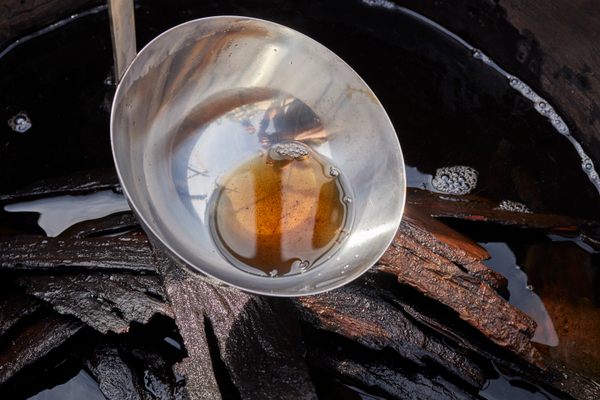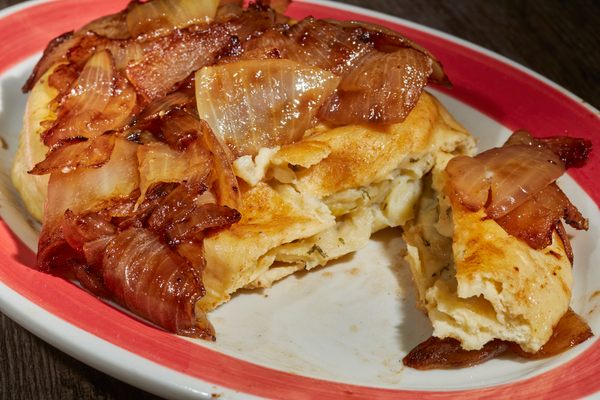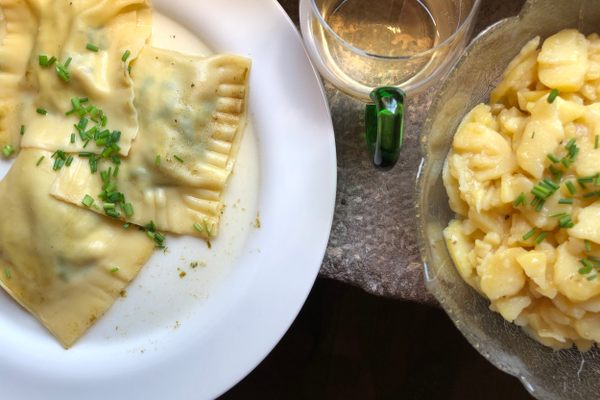Residents of Berks County, Lancaster County, and Lebanon County, among other Pennsylvania sub-regions, come out in droves each spring for fasnachts.
In Pennsylvania Dutch Country—the geographic area in the southeastern part of the state noted for its distinct German influence—a fasnacht is a traditional treat available on Shrove Tuesday, the day before Ash Wednesday when many Christians begin to fast for Lent.
The word “fasnacht” has German roots and assumes a variety of spellings depending on whom you ask. But no matter which iteration, the term translates to “fasting night.” Resembling doughnuts sans the hole, fasnachts are starchy and satisfying. But unlike doughnuts, they’re usually made from potato dough.
These fluffy German pastries, which date back to the 13th century, may not have always been made of potato, but they have always included rich ingredients. The idea was to clean out the cupboard ahead of Lent, says Annie Kurtz, bakery manager at Kirbyville Farm Market in Fleetwood, Pennsylvania, since people would forfeit ingredients such as flour, butter, and sugar until Easter.
But due to their popularity, “Fasnacht Day” has evolved into a season, with local bakeries churning out thousands of fasnachts each year and pre-orders rolling in weeks or months ahead of the holiday.
Kurtz says her baker starts crafting fasnachts as early as January and sells them long after Fasnacht Day ends, often through Easter. Likewise, Holly Haas, bakery manager and pastry chef at Frecon Farms in Boyertown, says the operation now sells between 20,000 and 30,000 fasnachts each year. Remarkably, the first batch Haas made six or seven years ago wasn’t well-received. “They have to be the right shape, size, and texture,” she says. “Once we dialed in on the dough, people loved them.”
So what makes a good fasnacht? Some say fasnachts need to be square, while others are satisfied with a round shape. At Frecon Farms, the bakery peels, chops, boils, and mashes dozens of potatoes by hand before mixing them into dough and deep-frying the fasnachts in palm oil shortening.
While many eat fasnachts un-embellished and fresh out of the fryer, others prefer a powdered sugar dusting to sweeten things up. Still others savor fasnachts drizzled with dark molasses or gooey table syrup. Kirbyville Farm fills the pastries upon request, sometimes with cream, and other times they crown fasnachts with chocolate glaze.
Frecon Farms, on the other hand, caters to purists, selling most fasnachts tossed in granulated white sugar or plain so they can soak up table syrup. Whichever way one prefers their fasnachts depends on family tradition, says Haas. “That is what fuels this love for fasnachts.”
Where to Try It
-
Frecon Farms makes fasnachts daily for several weeks during the Lenten season. Purchase by the dozen or half-dozen.
-
Hershey Harvest
3337 Kutztown Road, Reading, Pennsylvania, 19605, United StatesThis Reading mainstay, in business since the 1980s, accepts reservations for fasnachts as early as January.
Written By
 Tracy Kaler
Tracy Kaler















